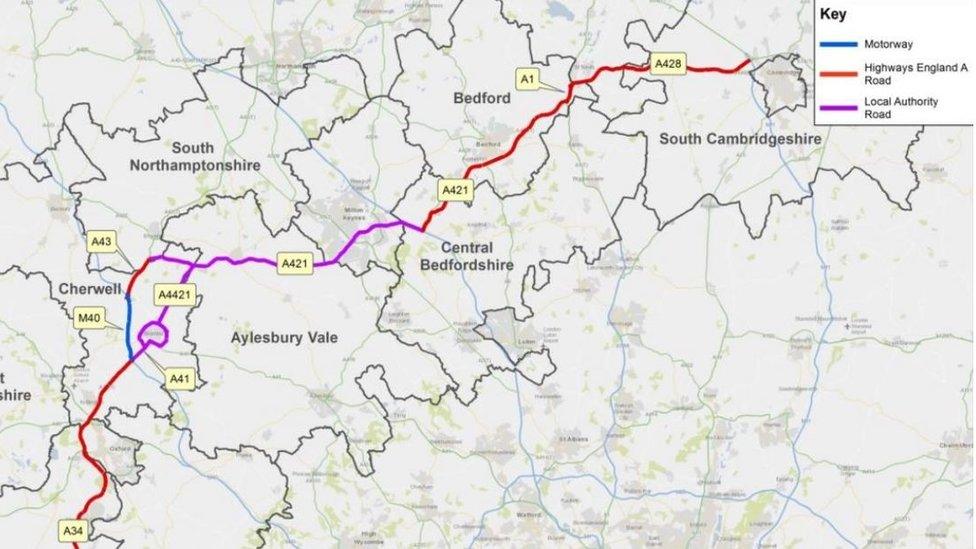Autumn Statement: UK economy must be watertight, says Hammond
- Published
Philip Hammond urged MPs to support Theresa May in her Brexit negotiations
The UK economy must be "watertight" to cope with "sharp" challenges ahead of Brexit, Chancellor Philip Hammond has said, days before the Autumn Statement.
Asked if he would help "just about managing" families, he said more must be done for those who feel they are not sharing in the UK's prosperity.
Labour's John McDonnell urged him to scrap benefit cuts.
Mr Hammond refused to be drawn on his plans, but stressed economic "credibility" was key.
He told the BBC's Andrew Marr Show the UK's debt was still "eye-wateringly" large and plans must be "responsible".
Some in Westminster expect Mr Hammond to use Wednesday's statement - one of two big economic statements of the year - to announce measures aimed at the key group of voters identified by Downing Street as the Just About Managing or JAMs, such as a freeze in fuel duty and measures to encourage saving.
£1.3bn to target congested roads
Statement teasers in the Sunday papers
Financial upheaval ahead for families
The chancellor said he accepted there were "people who work hard and by and large do not feel that they're sharing in the prosperity that economic growth is bringing to the country", adding: "We've got to make sure that the prosperity that comes from seizing opportunities ahead is shared across the country and across the income distribution."
He said ensuring job security for those people was "a key priority", but pressed on whether he would reverse cuts to Universal Credit, he said many forecasts were "pointing to a slowing of economic growth next year and a sharp challenge for the public finances".
"There are a range of reasons for that and we've got to make sure that what we do is responsible, that everything we do is compatible with building resilience in our economy as we go into a period where there will be some uncertainty around the negotiation over our exit from the EU."
He added: "I want to make sure that the economy is watertight, that we have enough headroom to deal with any unexpected challenges over the next couple of years and most importantly, that we're ready to seize the opportunities of leaving the European Union."
'Change direction'
Labour says some working families will lose up to £1,300 a year by 2020 if planned benefit cuts go ahead.
And the Women's Budget Group think tank has claimed that women on average will be £1,003 a year worse off by 2020, external, compared with £555 for men, with women on lower incomes worst affected.
Shadow chancellor Mr McDonnell told Mr Hammond: "This is money coming out of the pockets of those doing everything that is asked of them - trying to get work, in work, looking after their children, contributing to society.
"Will you change direction? Because if you reverse the cuts to Universal Credit... you will have my support."
In reply, the chancellor told him: "What I have not heard from you is where you would get the money from to do all these easy options."
The row comes amid reports that the UK is facing a projected £100bn "black hole" in its finances, external due to the UK vote to leave the EU.
Asked about continued calls for the government to say more about its aims in Brexit negotiations, Mr Hammond pointed to the "commendable discipline" from other European leaders when it came to not discussing their opening positions and said Prime Minister Theresa May must be given the same "flexibility".
He added that he was "surprised by the degree to which the cabinet is coming together around a view of the opportunities and the challenges ahead".
New expressway
Earlier it was revealed that around a billion pounds will be spent on improving England's roads.
The remainder of a £1.3bn Treasury pot earmarked for infrastructure investment will be split between Scotland, Wales and Northern Ireland, although the devolved administrations can choose to spend that money as they see fit.
But Martin Tett, transport spokesman for the Local Government Association, told BBC Radio 5live the announcement was "a relatively small amount of money in the context of transportation."
Mr McDonnell said the government was "going back to giveaways and gimmicks", and re-announcing "press releases we've had already".
Labour, he said, would invest an extra £500bn in the economy over 10 years to boost economic growth by 1-2%, half of which would be leveraged from the private sector through a national investment bank.
And he vowed that a future Labour government would halt tax cuts to the rich and big corporations.
- Published20 November 2016
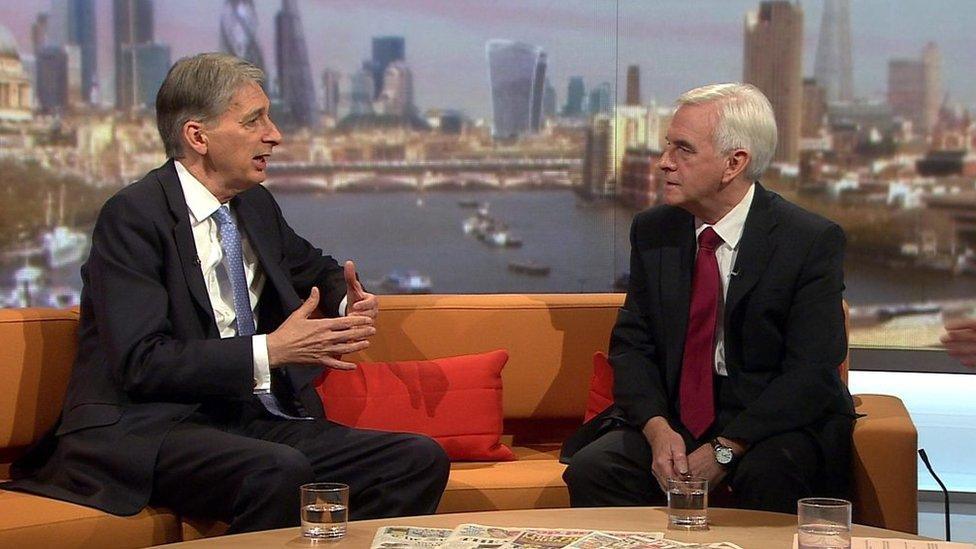
- Published20 November 2016
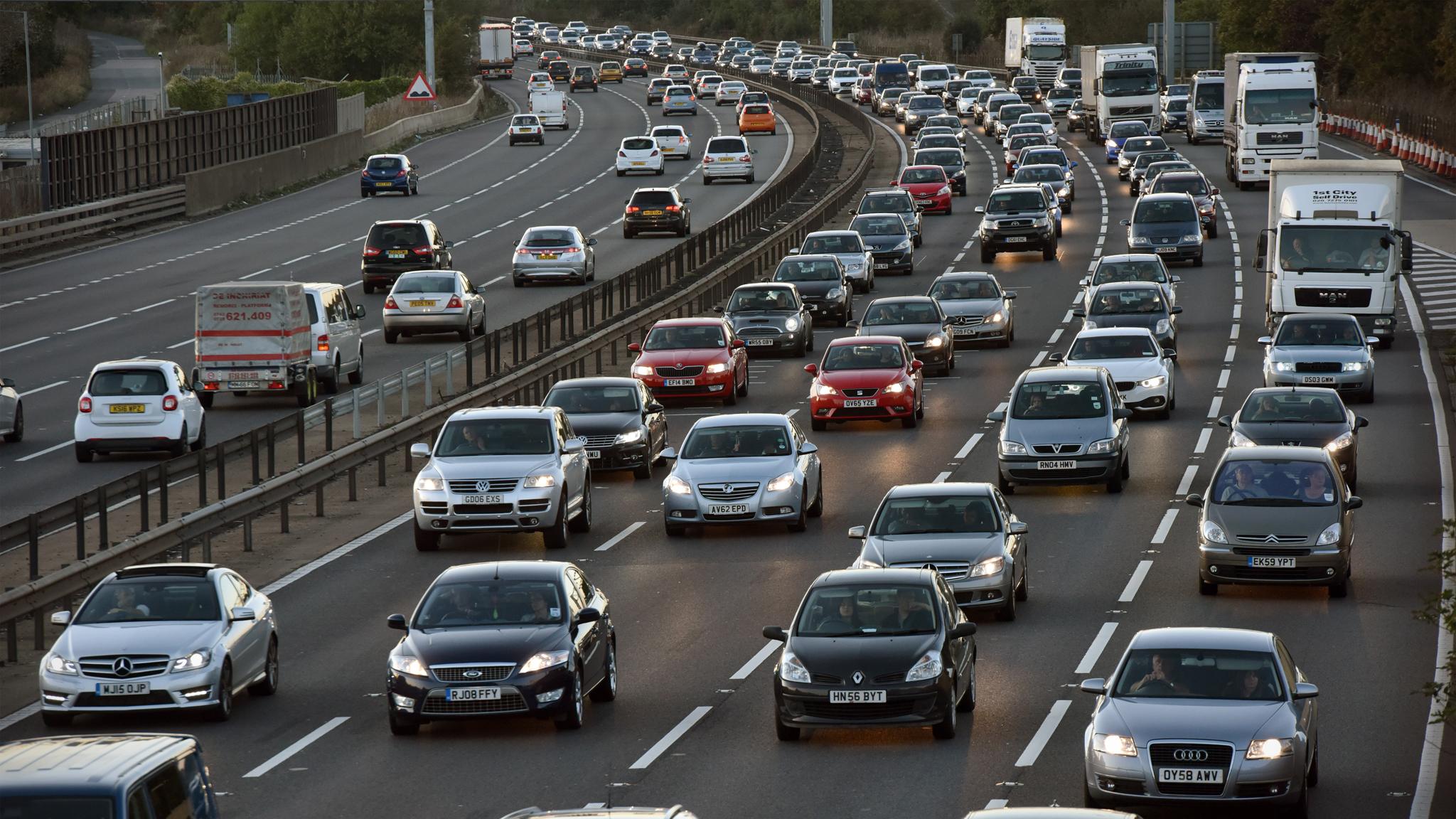
- Published18 November 2016

- Published18 November 2016
- Published18 November 2016
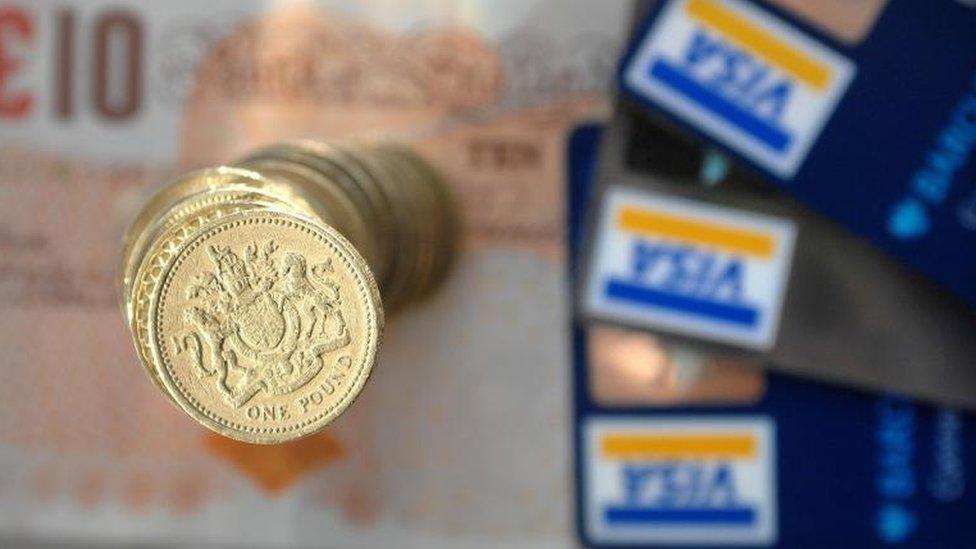
- Published17 November 2016
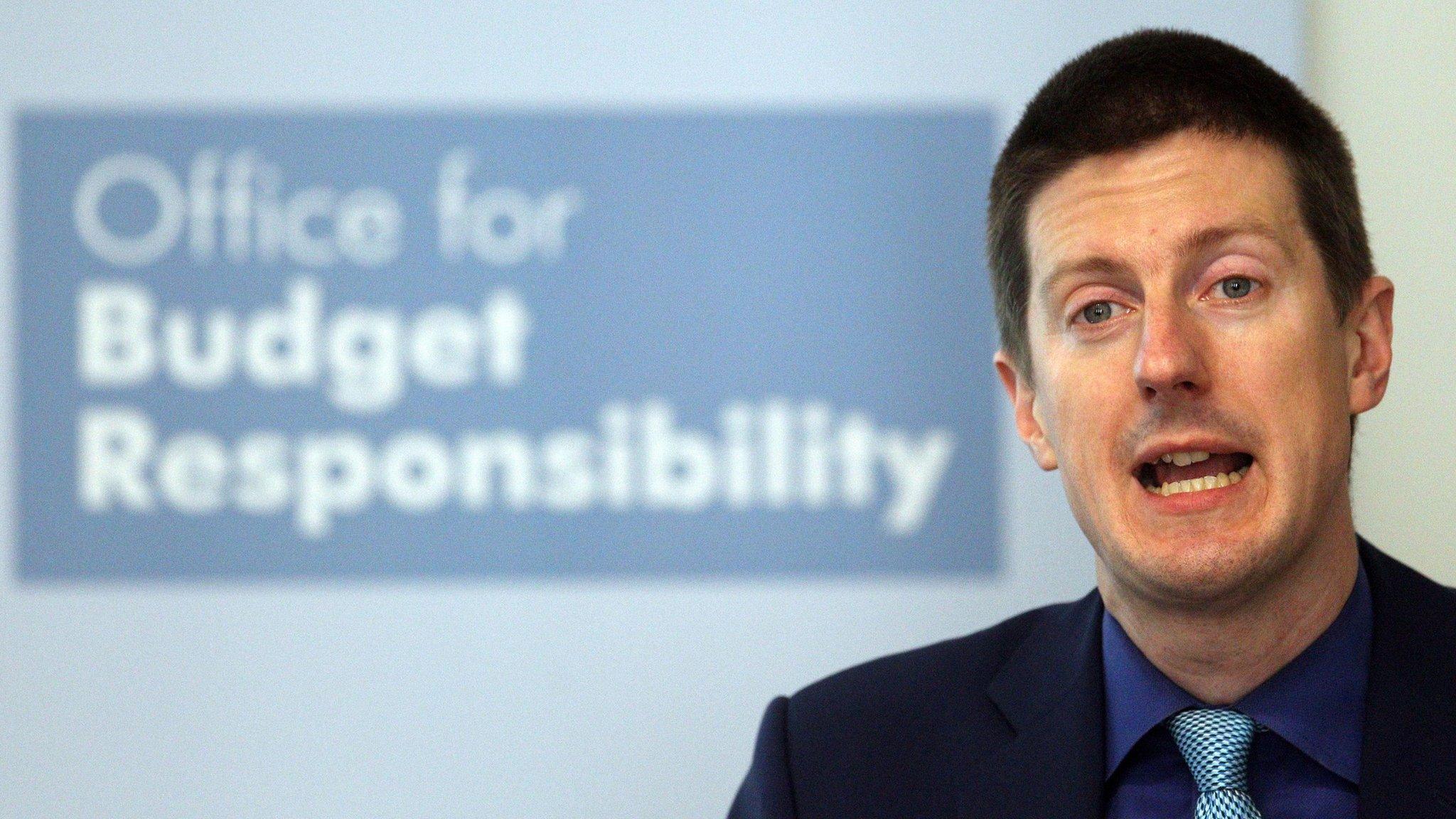
- Published17 November 2016
- Published16 November 2016
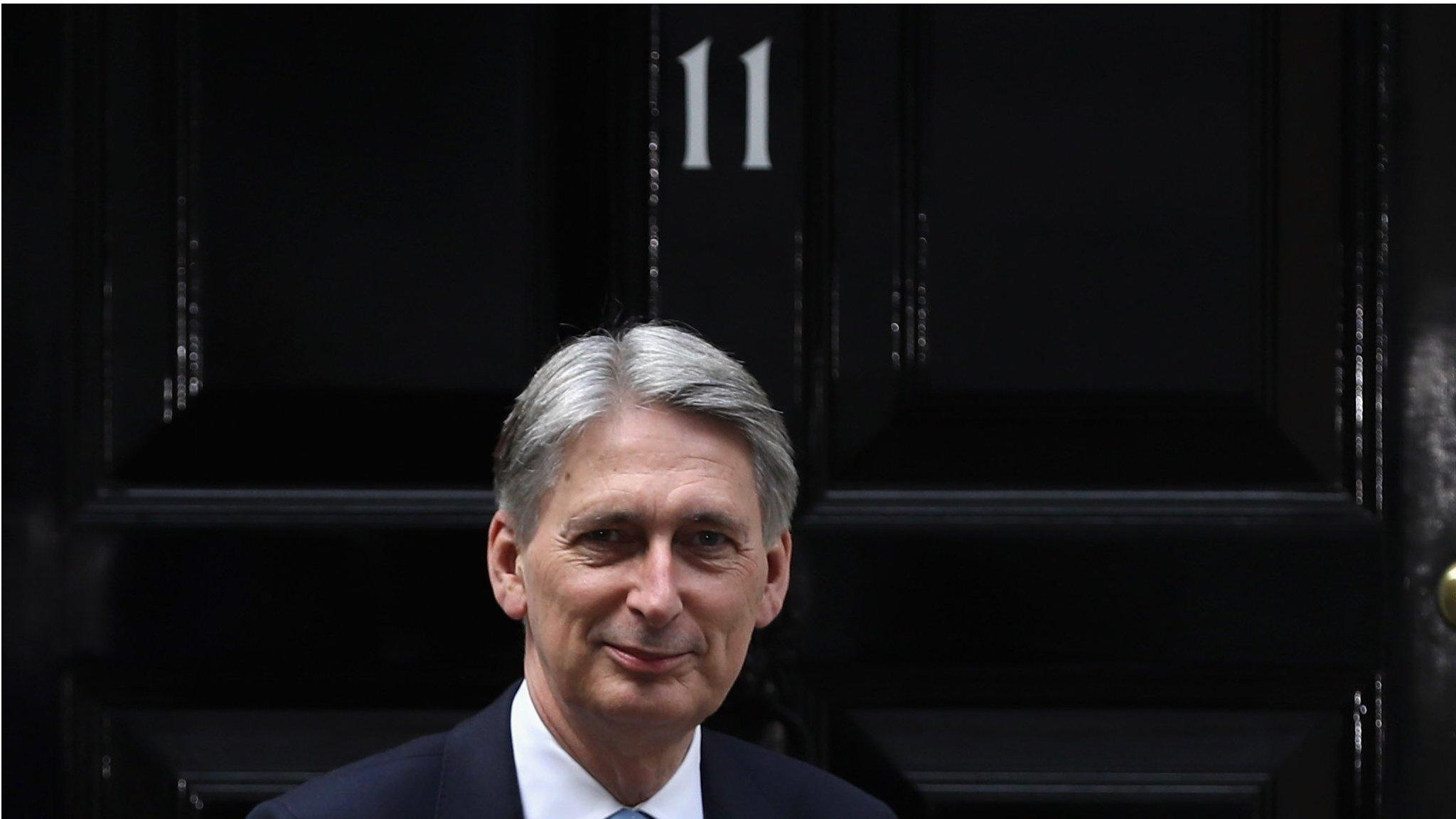
- Published8 November 2016
- Published18 August 2016
